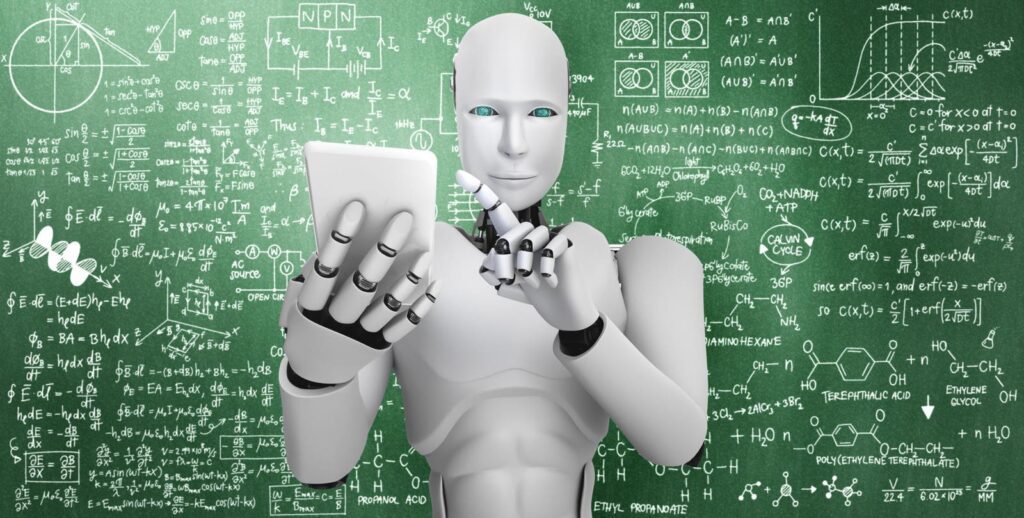The Future of Education: Embracing the Age of AI Agents
As we look ahead to 2025, it’s undeniable that artificial intelligence (AI) will play a transformative role in education. Over the past couple of years, conversations surrounding educational technology have increasingly gravitated toward the capabilities of AI, and one trend seems poised to take center stage: the emergence of AI agents. Rather than just being a tool at our disposal, these agents will act as interactive companions, deeply integrating into our learning experiences.
The Rise of AI Agents
So, what exactly does it mean when we talk about AI agents? The difference lies in the level of agency involved. Picture this: when tackling a math problem, a traditional tool might require you to sift through search engines for answers. In contrast, an AI agent would offer a seamless experience where you simply ask it to solve your problem. This shift means that AI can learn and adapt to your individual learning preferences, making the entire process feel more natural and personalized.
According to Bill Salak, the Chief Technical Officer at Brainly, 2025 will see AI agents that can handle complex tasks with straightforward user commands. Imagine being able to set a goal and have an agent aggregate data, make decisions, and take action on your behalf. It’s a game-changer that stands to redefine web interactions, making them more efficient and tailored to individual users’ needs.
In classrooms, these AI agents will likely become student favorites, as highlighted by Brad Barton, CTO of YouScience. As these agents grow more sophisticated, they will increasingly be woven into classrooms, tutoring platforms, and various educational apps. This engagement will enable students to receive interactive and tailored support that resonates with their unique learning journeys.
Jack Lynch, CEO of HMH, envisions AI agents taking on substantial responsibilities in K-12 education. He believes that these technological advances will free up teachers to focus on what really matters—connecting with their students and nurturing their growth.
AI Agents in the Classroom and Beyond
The role of AI agents is not limited to just educational instruction. In fact, as Bill Salak notes, these agents could take over numerous duties traditionally held by human employees, ranging from administrative functions to complex analytical tasks. This shift will necessitate that humans emphasize what we do best—think creatively, strategize, and demonstrate emotional intelligence.
Jay Patel from Cisco adds that these AI agents will likely become ubiquitous, operating on personal devices and providing users with nuanced virtual assistance. The deeper integration of agents into everyday life means they will embody the unique values and purpose of the organizations they represent, ensuring that interactions feel personalized and aligned with established brand identities.
Looking AI Agents in the Eye
For AI agents to reach their full potential as learning companions, they need to provide natural interaction experiences. Casual dialogue and contextual understanding are key elements. Hassaan Raza, the CEO of Tavus, mentions that a "human layer" will greatly enhance these interactions. The ability to connect on an emotional level and show empathy is crucial. For instance, he cites Tavus’s successful digital Santa Claus initiative, where the AI effectively engaged over a million users by creating relatable experiences.
We’re becoming accustomed to using video to engage with teachers and peers we’ve never met in person, making it easier to interact with AI agents that have a similar robust video presence.
AI Agents Will Become Ubiquitous
The potential of AI agents in education can’t be understated. As Anurag Dhingra from Cisco notes, "You’re going to wake up one day in 2025 and realize you’ve been using Generative AI all along." Whether at work, school, or home, AI will subtly infiltrate our daily routines, becoming an integral part of our lives.
As we grow comfortable with using AI agents, businesses will follow suit, increasingly deploying these agents across all sectors—including education. With a long-standing push towards personalized learning, the groundwork is already laid for these AI companions to change how we approach education.
In summary, the future of learning is on the brink of an exciting transformation. The incorporation of AI agents will not only enhance educational experiences but also revolutionize our interaction with technology on a broader scale. As we step into this new era, the possibilities are endless.
The AI Buzz Hub team is excited to see where these breakthroughs take us. Want to stay in the loop on all things AI? Subscribe to our newsletter or share this article with your fellow enthusiasts.




